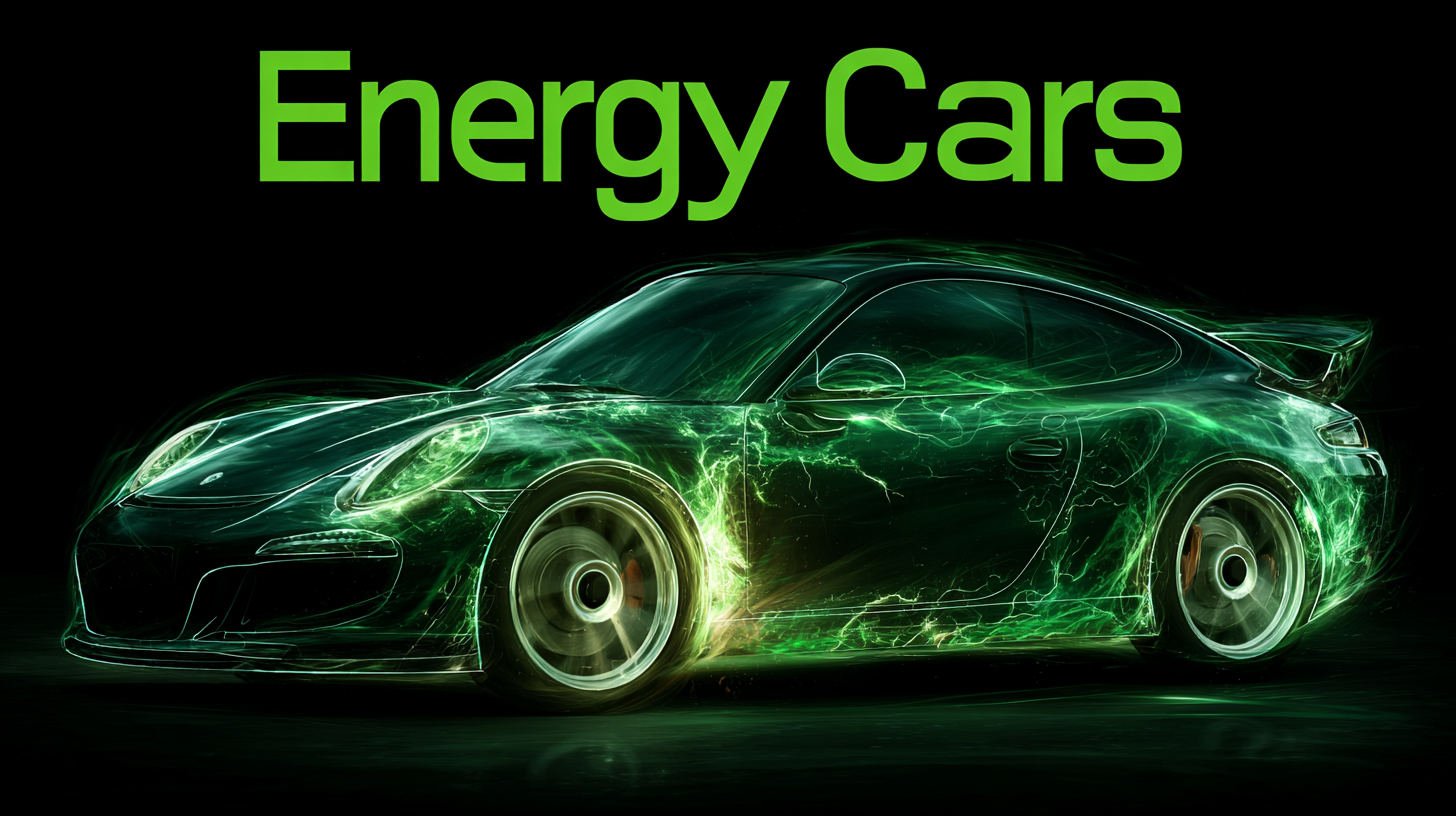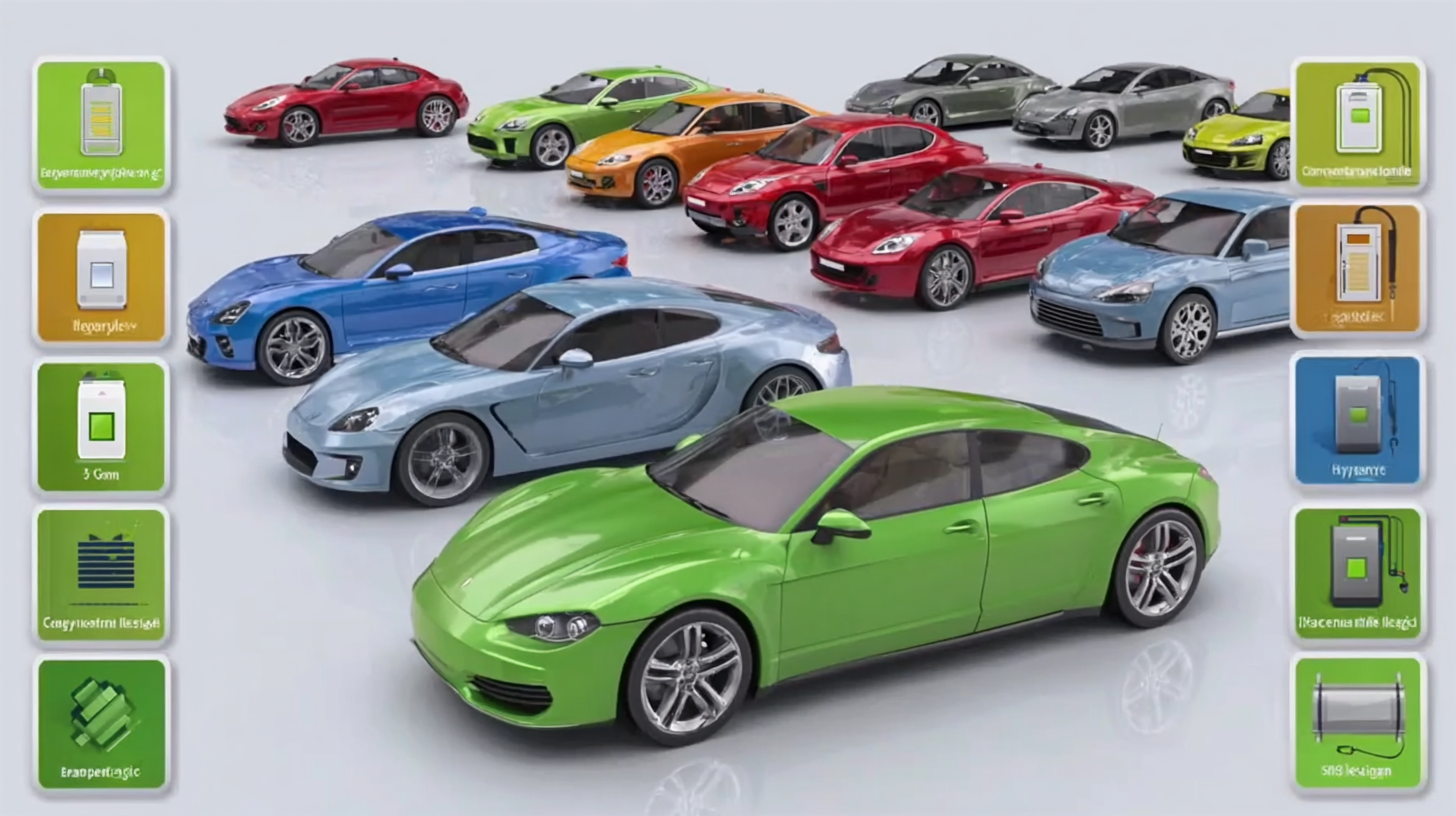Leave Your Message
As we progress towards a more sustainable future, the automotive industry is witnessing a significant transformation with the rise of Energy Cars. According to a recent report from the International Energy Agency, the global electric vehicle stock surpassed 10 million in 2020, with a staggering growth projection of up to 145 million by 2030. This shift is fueled by advancements in battery technology, government incentives, and increasing consumer demand for eco-friendly transportation options. The market is not only shifting towards electric vehicles but is also embracing hydrogen and other renewable energy-powered cars, opening new avenues for sustainability.
As governments worldwide tighten emissions regulations and consumers become increasingly environmentally conscious, choosing the right Energy Car has never been more crucial for both individuals and the planet. This Ultimate Guide aims to help you navigate the myriad of options available in 2025 and beyond, ensuring that you make an informed decision for a greener tomorrow.

As the world pivots towards sustainability, the benefits of electric vehicles (EVs) have become increasingly evident. EVs not only reduce greenhouse gas emissions, which contribute to climate change, but they also support a shift away from fossil fuels towards renewable energy sources. In 2024, global renewable energy capacity is set to reach unprecedented levels, with China contributing a significant 60% of the new renewable energy generation. This highlights the potential for electric vehicles to operate on greener grids, further diminishing their environmental impact.
Moreover, the financial incentives tied to EVs play a crucial role in their adoption. With decreasing costs of battery technology and the potential for lower maintenance expenses, electric vehicles present a cost-saving alternative to traditional combustion engines. Initiatives aimed at promoting green fuels in transportation are gaining traction, underscoring the need for a holistic approach to achieving zero emissions in sectors like shipping. As the world strives for greener transportation solutions, understanding the cost benefits and environmental impacts of electric vehicles is essential for fostering a sustainable future.
| Car Type | Environmental Impact (CO2 Emissions, g/km) | Annual Fuel Cost Savings ($) | Maintenance Cost Savings ($/Year) | Driving Range (Miles) |
|---|---|---|---|---|
| Electric Vehicle (EV) | 0 | $800 | $200 | 250 |
| Plug-in Hybrid Electric Vehicle (PHEV) | 40 | $600 | $150 | 600 |
| Hybrid Vehicle | 90 | $300 | $100 | 500 |
| Conventional Gasoline Vehicle | 150 | N/A | N/A | 400 |
When choosing an energy-efficient car for a sustainable future, several key factors should influence your decision. According to a recent survey, 66% of prospective car buyers prioritize fuel efficiency above other considerations like safety and price. This is a significant statistic, emphasizing the growing importance of energy efficiency in automotive purchasing decisions. While gas-powered cars may initially seem cheaper, electric vehicles (EVs) often provide long-term savings in terms of operating costs, maintenance, and fuel.
Tip: Before making a purchase, calculate the total cost of ownership for both electric and gas cars, including energy costs, maintenance, and resale value.
Another crucial aspect to consider is the environmental impact of your choice. Although manufacturing electric vehicles is more carbon-intensive due to battery production, they are much cleaner during operation. This shift towards electrification is vital as more people recognize that their vehicle choice contributes to broader climate goals. However, it's essential to note that the growing popularity of SUVs is threatening to negate the climate benefits of electric vehicles.
Tip: Research models that offer a balance between energy efficiency and size to avoid contributing to increased carbon emissions.
When it comes to energy cars in 2023, several models stand out for their performance, range, and sustainability ratings. The top five energy cars not only provide efficient energy use but also contribute to a greener future. According to the International Energy Agency (IEA), the demand for electric vehicles (EVs) surged by 50% in 2022, indicating a significant shift towards sustainable transportation. Vehicles like the Tesla Model 3 offer an impressive range of about 353 miles per charge, making it a favorite among eco-conscious consumers.
Another contender, the Hyundai Ioniq 5, boasts rapid charging capabilities and a blend of performance with style. It provides around 303 miles of range while receiving a perfect sustainability rating from the Environmental Protection Agency (EPA). To make the best choice, consider the available incentives for EV purchases in your region and evaluate the total cost of ownership, including maintenance and fuel savings.
Additionally, don’t overlook the importance of battery efficiency. The Ford Mustang Mach-E showcases a high energy efficiency rating of up to 15.7 kWh per 100 miles driven, making it a smart investment for sustainable travel. When selecting an energy car, keep in mind factors like charging infrastructure and the environmental impact of the battery production to ensure that your choice aligns with your sustainability goals.
The future of green technology is rapidly evolving, with innovations that are significantly shaping the energy car market. Advances in battery technology, including solid-state batteries and improved lithium-ion systems, are enhancing vehicle range and reducing charging times. Manufacturers are investing heavily in research and development to create more efficient energy storage solutions that not only power cars longer but also support faster, more convenient charging infrastructures. This shift not only makes electric vehicles (EVs) more appealing to consumers but also addresses concerns about range anxiety, a common hurdle in EV adoption.
Additionally, the rise of artificial intelligence and smart technology is revolutionizing how energy cars operate. Features such as regenerative braking and smart energy management systems allow vehicles to optimize their energy use, thereby increasing efficiency. Furthermore, innovations in software and connectivity are enabling car manufacturers to integrate real-time data analytics, which can predict energy consumption patterns and personalize the driving experience. As these technological advancements continue to unfold, they are not just transforming the energy car market but are also contributing to a sustainable future where transportation leaves a minimal carbon footprint.

When considering the purchase of energy cars, understanding government incentives can greatly influence your decision. Numerous countries are extending their electric vehicle (EV) incentive programs, creating a favorable environment for prospective buyers. For instance, Singapore has announced that it will maintain existing incentives for clean energy vehicles until the end of 2025, while reducing rebates for hybrid models. Such measures aim to encourage the adoption of electric cars, helping consumers offset initial costs and promote a cleaner future.

However, it's essential to stay updated on changes in these incentive programs. Recent reports indicate that some regions are decreasing rebate caps for electric vehicles, demonstrating the government's focus on managing expenditures. For instance, in some areas, the cap on rebates was lowered from 20,000 to 15,000, while tax credits for hybrid vehicles are being reduced significantly. By staying informed about these developments, consumers can better navigate their options and take advantage of the best offerings available in the market, ensuring that they contribute to a sustainable future while optimizing their investment.
